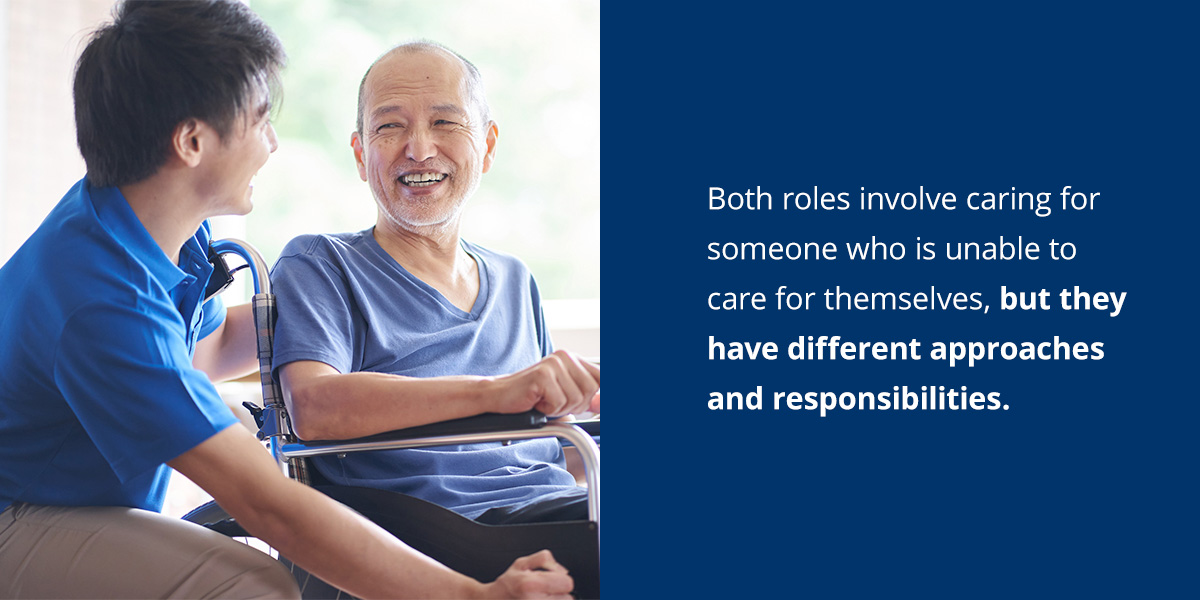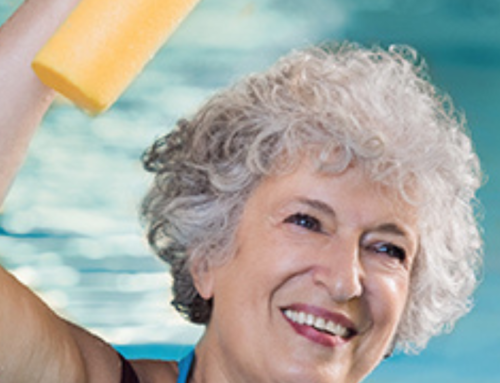The terms caregiver and caretaker are often used interchangeably, and if you’re confused about the difference, you’re not alone. Understanding the differences between a caregiver and a caretaker is important when deciding who to hire for your loved one’s care. In this article, we’ll explore the roles and responsibilities of each and help you make an informed decision.
The role of a caregiver is to assist a person with their daily activities, such as dressing and eating. Caregivers may also provide emotional support and companionship to their clients. A caretaker is responsible for maintaining a property or taking care of animals or plants.
Caregiver
When it comes to providing care for a loved one, a caregiver can be an invaluable resource. A caregiver is someone who provides support and assistance to people who are unable to care for themselves due to physical, mental or emotional reasons.
Definition of Role
A caregiver’s primary role is to assist their clients with their activities of daily living. This can include tasks such as dressing, grooming, feeding and toileting. Caregivers may also help with household chores, provide transportation and give reminders about taking medications. In addition, caregivers often provide emotional support and companionship to their clients.
Skills and Qualifications
Caregivers require a unique set of skills to be successful in their role. Some required skills include:
- Compassion and empathy.
- Patience and flexibility.
- Communication and interpersonal skills.
- Time management and organizational skills.
- Problem-solving and critical-thinking skills.
Caregivers should be vetted by the organization they work for.
Caretaker
A caretaker is a professional who assists and supports individuals who need help maintaining their homes, properties and pets.
Definition of Role
A caretaker’s primary role is to ensure that their client’s homes or properties are well-maintained and cared for. This may include performing tasks such as cleaning, cooking, doing laundry and taking care of pets or plants. Caretakers may also perform basic repairs, manage the property’s security and coordinate with other service providers such as landscapers and housekeepers.
The responsibilities of a caretaker may vary depending on their client’s needs. Some of the most common responsibilities include:
- Cleanliness: Maintaining the property’s cleanliness and organization.
- Pet care: Providing care for pets and plants on the property.
- Security: Ensuring that the property is secure and safe.
- Management: Coordinating with other service providers, such as housekeepers, landscapers and contractors.
- Budget: Managing the property’s budget and finances.
Skills and Qualifications
Several key skills and qualifications are noteworthy to have to be a successful caretaker, including:
- Assertive communication: Caretakers must also have interpersonal skills to interact effectively with clients and other service providers.
- Organizational and time management skills: Caretakers must be able to manage multiple tasks and responsibilities.
- Basic knowledge of home repairs and maintenance: There will be general wear and tear on the property that a caretaker will have to attend to.
- Ownership: Caretakers must be able to work independently and make sound decisions.
- Physical ability: Caretakers must possess physical stamina and strength to perform tasks such as cleaning, lifting heavy objects and working outdoors.
Choosing Between a Caretaker vs. a Caregiver
When it comes to taking care of someone who needs assistance, choosing between a caregiver and a caretaker can be a difficult decision. Both roles involve caring for someone who is unable to care for themselves, but they have different approaches and responsibilities. Here are some factors to consider when considering a caretaker vs. a caregiver:
Level of Care Needed
The first thing to consider is the level of care that the person needs. A caretaker may be the better option if the person needs support with their property. A caregiver may be a better fit if the person needs help with daily living activities or needs personal care and companionship.
Type of Relationship
Another factor to consider is the type of relationship that the person wants with their caregiver or caretaker. Caregivers often become like family members, building close relationships with those they care for. Caretakers, on the other hand, may have a more professional relationship with their clients.
Personal Preferences
Ultimately, deciding between a caregiver and a caretaker will depend on personal preferences. Ideally, you will need to consider the needs of the person who needs care. Some people may prefer a more professional relationship with a caretaker, while others may want a closer, more personal relationship with a caregiver.
Signs Your Loved One Needs a Caregiver
As our loved ones age, it can become increasingly challenging for them to care for themselves independently. Sometimes, it may be necessary to bring in additional support to ensure their well-being and safety. But how do you know when it’s time to hire a caregiver? Here are some signs to look out for:
- Struggles with daily activities: Does your loved one need help with basic activities of daily living such as dressing and using the bathroom? These are clear indicators that they may need the assistance of a caregiver.
- Memory problems: Memory loss can be a common issue as we age, but it can also be a sign of a more serious condition like dementia. A caregiver can help keep older adults safe and provide support if they struggle to remember details or are experiencing confusion.
- Poor hygiene or appearance: If you notice that your loved one is not keeping up with their personal hygiene or grooming, it may be a sign that they need help.
- Increased isolation: Older adults may become more isolated as they age, leading to feelings of loneliness and depression. A caregiver can provide companionship and social interaction to help combat these issues.
- Medication management: If your loved one is struggling to manage their medications, they may benefit from the support of a caregiver who can help ensure that they are taking their medications properly and on time.
Remember, a caregiver can provide much-needed support and ensure that our loved ones receive the care and attention they need to live happy and healthy lives.
Need Home Care in Philadelphia?
Choosing between a caregiver and a caretaker can be a tough decision. Consider your loved one’s specific needs, your budget and your own personal preferences. Whether you choose a caregiver or a caretaker, the most important thing is that your loved one receives the care and support they need.
If you require home care in Philadelphia, Open Arms Home Care is a great option to consider. We provide high-quality, compassionate care to older adults and individuals with disabilities.
With our team of caregivers, you can rest assured that your loved one will be in good hands. Contact us today to start the journey of care for your loved one.







